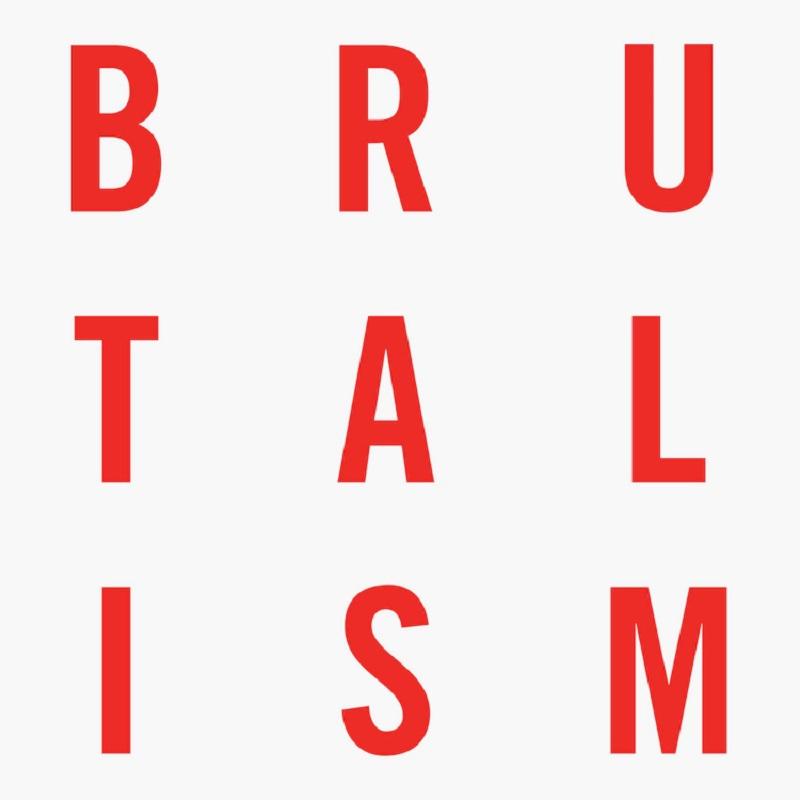
IDLES AF.
Contrary to what you might think, there are very few occasions at Live4ever where the arrival of a new album is marked by any kind of ceremony.
This is both because physical product going anywhere is almost unheard of now (even though you’re all shelling out your hard earned for vinyl), but equally as most of the time even records that change lives start out as just records.
Idles’ Brutalism got to us like that, like most albums do. Mild interest had been piqued in the run up by Well Done, a song that had managed to escape the novelty factor of diss-quoting celebrities like Trevor Nelson and Mary Berry in the lyrics by going for power rather than finesse. Rightly or not, it stuck.
Clearly though, a dozen Well Dones were not a worthwhile exercise going to make, so for this odd-looking, previously unheard-of quintet from the rock backwater of Bristol to leave an impression they would have to offer more than just a bit of alt-pish karaoke.
And in the hyper competitive world of debut releases by ‘new’ bands, the odds of this are always set by default to less than even.
Since then, this bruised gem has seen more and more context applied to it, specifically about the relationship between singer Joe Talbot and his alcoholic mother, who’d suffered a stroke when he was 16, and for whom he cared up until her death as the songs on it were being written and recorded.
At the time however, this personal anguish wasn’t widely understood but almost simultaneously Britain was still coming to terms with the result of a referendum on European Union membership which had seen the far-right effectively stage a bloodless coup.
And yet the feelings of isolation and despair many felt at this were reflected nowhere in the media, who’d been totally consumed by its delusion. For millions of now disenfranchised people, it felt like their beliefs no longer mattered.
Hooks, riffs, meaning – all these qualities were important, but a huge part of Brutalism’s first play appeal and resonance was that it was fast, enraged, caustic and in no state of mind to forgive or forget its enemies.
Opener Heel/Heal dived straight into the existential myth of modern living, Talbot deadpanning, ‘I want to move into a Bovis home/And make a list of everything I own’.
Believing in anything so absurd as possessions over freedom was clearly pointless, yet it seemed this materialist distraction was on every screen you looked at, whilst some now felt sufficiently emboldened to display their bigotry without much fear of consequence.
Not that this was an overtly political record, although its values were clear on tracks like Divide & Conquer, which dealt with the privatisation by stealth of the national health service, or in spearing toxic masculinity with Exeter, where the protagonist is forced to punch himself in the face to show his peers he isn’t gay.
It was more instead that Talbot and co. were speaking from a liberal perspective of respecting empathy, diversity and freedom of expression that was suddenly being depicted as radical.
Less heralded but as welcome were the musical antecedents at work here, a subconscious (probably) reaching back to the likes of Black Flag, Crass, the Dead Kennedys and The Stooges, all punk bands who weren’t really punks and that never recognised the artificial doctrines the movement had thrown up around itself. Like Idles, they felt the act of saying it was as integral as what you actually said.
With this bombast also came humour; bleak, laugh-out-loud aphorisms such as on Stendhal Syndrome (‘Did you see that painting what Rothko did/Looks like it was painted by a two-year-old kid’), or White Privilege (‘The SLC want Timmy’s student loan back/He’d happily oblige but he’s used it all on gak’). As a counterpoint though came the bleak juxtaposition of 1049 Gotho, the song’s depression sufferer revealed later as Talbot’s brother.
Brutalism’s popularity grew almost by stealth at first, driven by Idles’ old school enthusiasm for taking it on the road and the word of mouth it provoked, eventually finishing up in several year-end polls.
Its relative success was the foundation for its successor Joy As An Act Of Resistance to peak in the higher reaches of the charts; had this not happened there’s still the notion that this outpouring of emotion and energy might’ve been their first – and last – album.
Five years on, its legacy remains hard to quantify. The band have never returned to that stark abrasion for long, becoming ever more experimental and even dabbling with soul on 2021’s Grammy-nominated Crawler.
There are not either a handful of flatteringly sincere imitators, although this is probably a recognition that their niche is more or less unique, one that through their devotees in the ‘AF Gang’ is also a fiercely protected safe space.
We can say with some certainty for us though what in the first place Brutalism was: just another record, by just another band. That it’s come to mean so much to so many was in no way inevitable, but via a process nobody could ever recreate in a lab, its spirit found an audience which to that point hadn’t even been aware of its own existence.
Life changing records do that.



